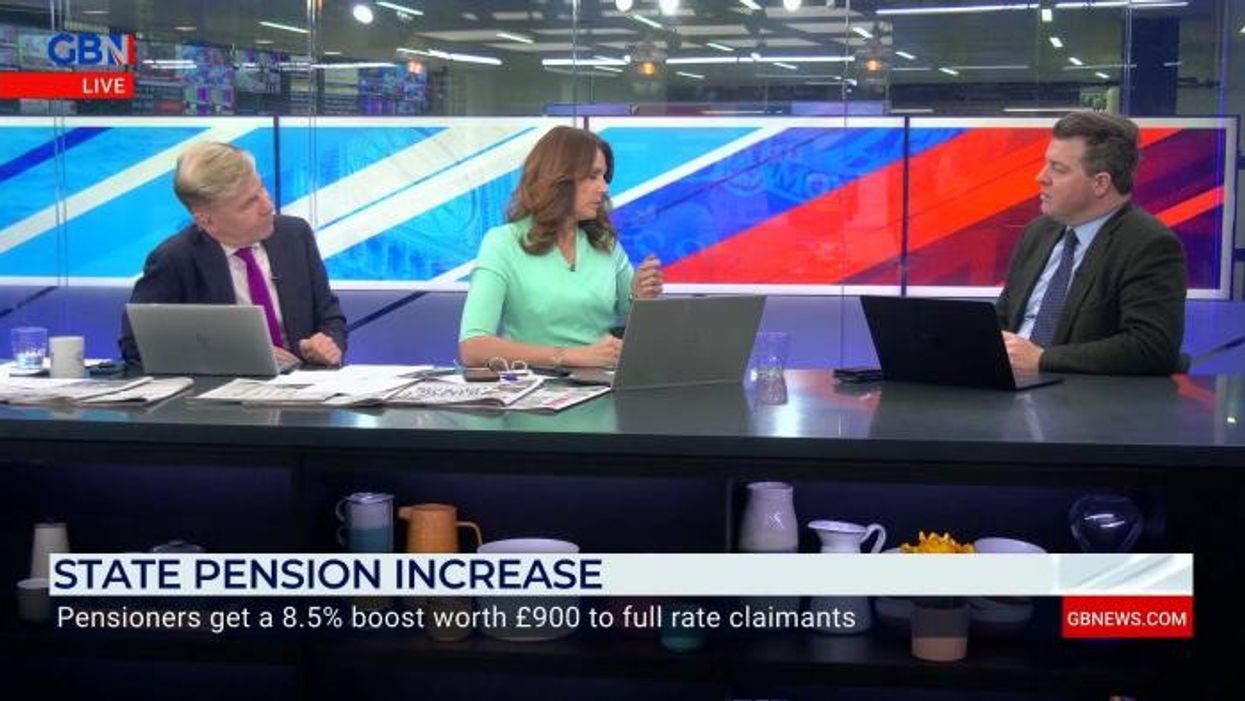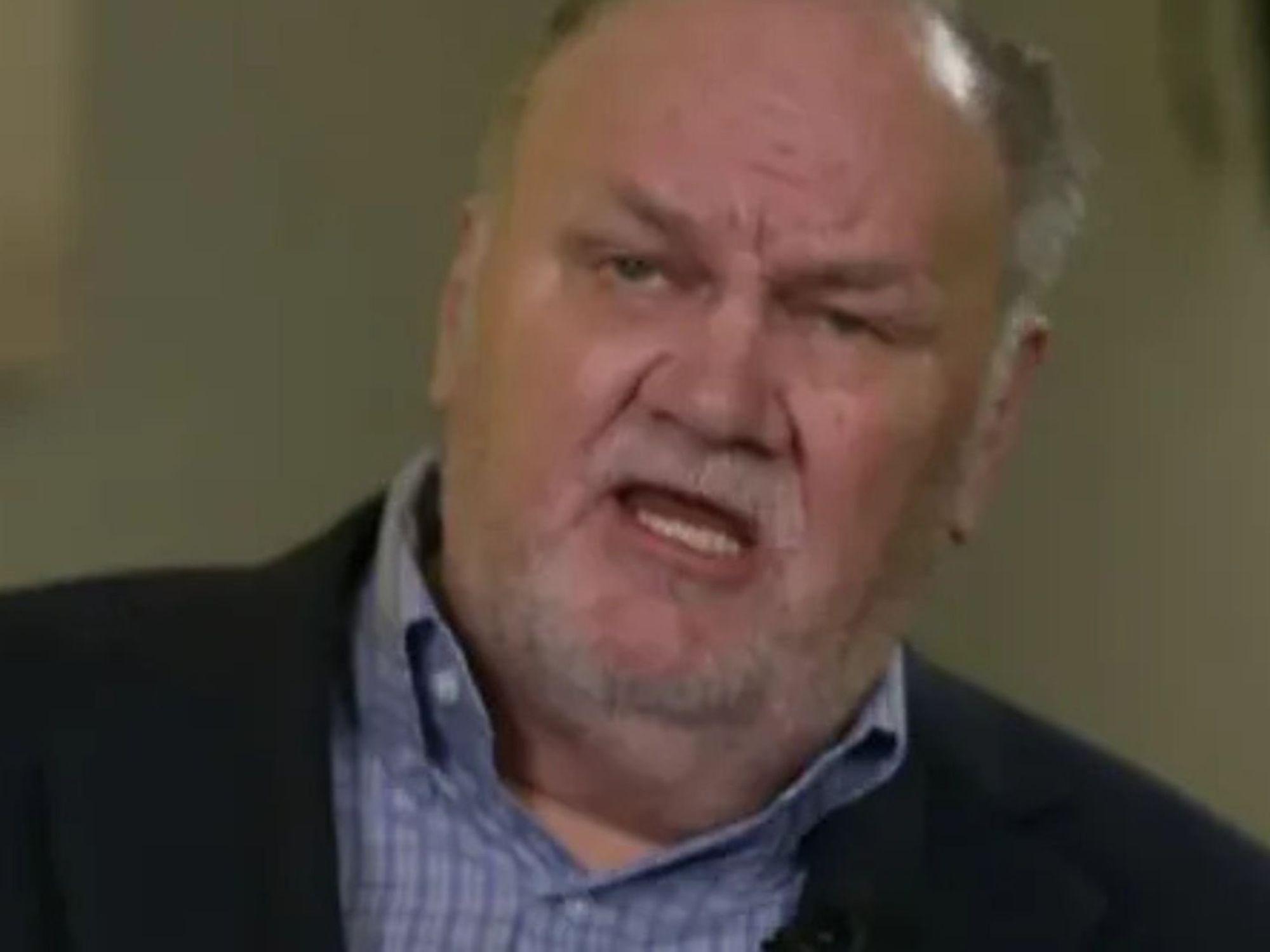Triple lock state pension: It's time a courageous political party SCRAPPED this unjust perk, says Mark Littlewood
Political parties need to show courage when it comes to the triple lock, argues Mark Littlewood
Don't Miss
Most Read
As the saying goes, if you rob Peter to pay Paul then you can be pretty sure of getting Paul’s vote. Many will conclude that this is the rather cynical thinking behind the Conservative Government’s ongoing commitment to the triple lock on state pensions.
Introduced by the Conservative-Liberal coalition government over a decade ago, the triple lock pledge was always a highly expensive exercise in electoral optics. It was motivated by the backlash faced by Gordon Brown some years earlier when he announced a measly 75p rise in the pension.
This may have given the impression of being stooge-like and penny pinching, but Brown was actually exercising some welcome fiscal constraint. Inflation was very low and pensioners didn’t need much of a boost to their payments to keep up with the cost of living.
George Osborne learnt an important public relations lesson, but at an enormous economic cost. He wasn’t prepared to offer a mere nudge upwards in the state pension simply because inflation was under control.

Older couple sat at home looking at laptop
|GETTY
Instead, pensioners would receive an uplift based on consumer price inflation, wage growth or 2.5 per cent, whichever of these three factors were the highest. If it wasn’t to be a bonanza each and every year, it would at least be an eye-catching headline.
Initially at least, the triple lock may have seemed affordable. Wage growth and inflation tend to be somewhere around 2.5 per cent anyway, so – in normal circumstances – you might expect the differences between the three numbers to be minimal.
However, as Albert Einstein pointed out, compound mathematics are the eighth wonder of the world, “He who understands it, earns it. He who doesn’t, pays it.” Over a long period of time, putting something up by three per cent or four per cent rather than one per cent or two per cent leads to an enormous ballooning in your total bill. So, it has come to pass that the state pension is now the biggest item of state expenditure, at around £112billion every year.
Essentially, we are allowing pensioners to share in any economic gains the nation makes without ever asking them to share in any collective pain. This came into stark relief during the lockdown-induced recession. Workers on furlough may have enjoyed their enforced and increased leisure time, but they found it harder to make ends meet. Pensioners were insulated.
LATEST DEVELOPMENTS:
The future of the triple lock has been brought into question
| PADignity for all in old age is clearly a hallmark of a decent society but we have now designed a pensions system that is both unsustainable and unfit for purpose.
Younger workers who have faced a woefully sluggish economy are almost certainly right to suspect that they will not be afforded the sort of generosity being extended to their parents and grandparents.
Yet it is they who are picking up the bill for today’s pensioners whilst facing rising prices and struggling with the near impossibility of getting onto the housing ladder.
Those in receipt of their pensions will fairly point out that they have “paid their stamp” over the course of their working life and are doing no more than claiming the benefits they have paid for.
 The Tory Party pledged to protect the triple lock in 2019 | PA
The Tory Party pledged to protect the triple lock in 2019 | PAThere are two problems with this argument. First, the aggregate amount paid in is considerably less than the amounts being paid out. Second, the state has run our pensions system like a Ponzi scheme. Money raised in national insurance contributions has not been wisely invested by successive governments to ensure we have built up a national nest egg.
Quite the contrary, it’s all been spent (and some of it no doubt squandered). A private sector pensions company which operated in such a fashion would swiftly find its company directors behind bars.
Of course, we cannot allow pensioners to unreasonably suffer. You can’t mess around with people’s reasonable expectations – especially when they are not in a position to change their own circumstances (you can’t suggest to a typical 85-year old that they should re-enter the labour market to make ends meet).
However, we have now allowed intergenerational unfairness to become a key feature of our welfare system. When we introduced the first state pension over a century ago, it kicked in at a modest rate and only for those who needed it and from the age of 70. Life expectancy at the time was barely above 50.
Today, life expectancy is around 79 for men and 83 for women and the pension kicks in in your mid-60s. Also, more than a quarter of pensioners now live in millionaire households.
Retaining the triple lock is expensive and unjust. We need a courageous political party to promise that in future the state pension will be linked to rising prices and nothing else. Sadly, economic prudence and political bravery seem in very short supply just now.











